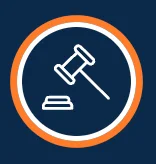Urinary tract infections (UTIs) are common in nursing homes. The CDC reports that as many as 30% of infections in long-term care homes are UTIs. Facility operators must identify the causes of UTIs in nursing homes and take reasonable steps to mitigate them. When negligence results in harm to a resident, the nursing home may have the liability to pay compensation. To discuss your situation or that of a loved one, call 864-808-1810 to talk to a Greenville nursing home abuse lawyer at Jordan Law Center.
What Causes UTIs in Nursing Homes?
Causes of UTIs in nursing homes may include:
- Caregivers failing to change gloves
- Using instruments or materials on multiple residents without cleaning
- Lack of facility cleanliness in general
- Catheter use
- Functional decline of bladder and bowel function, reducing the body’s defenses
- Not using the bathroom often enough
- Poor personal hygiene, not washing hands after using the bathroom
- Enlarged prostate, pelvic organ prolapse
- Sexual activity
- Sexual abuse
- Overuse of antibiotics, resulting in resistant bacteria
- Poor communication of medical needs in general
Unsanitary conditions at a nursing home may contribute to the prevalence of UTIs. A resident may not have their needs met when it comes to personal hygiene and care, or there may be a lack of cleanliness and disease prevention practices through the facility.
People living in nursing homes are often at elevated risk for contracting a UTI because of advanced age and medical conditions. Care facilitators must account for elevated risk factors when creating a plan for the safety and welfare of residents.
What is a UTI?
A UTI is an infection of the urinary tract. Bacteria enter the urethra, where urine flows out of the body.
The bacteria infect the urinary tract and may affect the bladder or kidneys.
Signs of UTIs
Signs of a UTI include:
- Frequent urination or the urge to urinate, incontinence
- Urine that smells, cloudy urine
- Pain when urinating
- Fever, chills, vomiting, rigors
- Pain in the stomach or back
- Weakness
- Cognitive changes
- Swelling, tenderness of the prostate
- Secondary bloodstream infection
A culture test can be done to identify bacteria in the urine. Treatment may include antibiotics, but antibiotics may cause side effects.
Preventing UTIs in Nursing Homes
Knowing that people living in care facilities are at an elevated risk for UTIs, nursing home operators must take reasonable prevention measures. Some of these measures should include:
Healthy living
Residents must live in a healthy environment. That includes having safe water, a way to drink, and opportunities to drink water, ensuring they stay well hydrated. They need mobility and the chance to exercise. Specific physical therapy may be necessary for an individual. Dietary needs should be addressed, including reducing dairy and spices, if appropriate.
Personal hygiene care
Residents should be given enough opportunities to use the bathroom. They should have toileting opportunities at reasonable intervals. If they are unable to practice sufficient hygiene when using the bathroom, they may require assistance. Soap must be provided.
Facility cleanliness
Care providers must have clear standards in sanitary practices throughout the facility. They must clean surfaces and use fresh linens for each patient. Infection control practices should be detailed and communicated to workers. Facility managers should promote a culture of safe practices and take remedial measures when requirements are not followed.
Reporting and tracking
When infections occur, a facility should track and report them, complying with minimum standards for tracking infections. They should act on the information to increase infection prevention measures as needed.
Education
Skilled medical professionals and caregiving assistants must be educated about UTIs and their signs and symptoms. They must understand that older adults may present infection in an unusual way. Fever may not be pronounced, and there may be changes in cognitive function. With proper training, care providers can understand what to look for and how to respond.
Complications of a UTI
Complications of a UTI may include:
- Incontinence
- Frequent urination, intermittent urine stream
- Feeling like the bladder isn’t empty
- Kidney failure, staghorn urinary calculi (complex renal stones)
- Pyelonephritis (kidney inflammation)
- Emphysematous pyelonephritis and cystitis (necrotizing infection and gas in the urinary system)
- Focal renal nephronia, renal abscess
- Chronic prostatitis, prostatic abscess
- High blood pressure, hypertension
- Sepsis
- Death
These complications can be serious and even deadly.
Take Legal Action
A nursing home resident may contract a UTI because of negligence. The care facility may have legal liability in any of these circumstances:
- Poor hygiene throughout the facility, leading to a UTI
- A lack of attention to the personal needs of an individual, resulting in an infection
- Failing to recognize the signs and symptoms of a UTI, leading to complications that could have been prevented
Nursing home operators are legally responsible to provide safe care. With UTIs being one of the most common types of infections, and with the elderly and vulnerable populations being especially at risk, providing safe care means having measures to prevent UTIs.
If you or a loved one has suffered a UTI in a nursing home, you may deserve financial compensation. The nursing home may be responsible for negligence and have legal liability. Intentional harm is not required for a claim for monetary compensation. To receive a payment, you must identify negligence, bring a legal claim, and identify your damages. Our law firm can represent you, taking care of all these steps.
Work with a Lawyer at Jordan Law Center for UTI Victims in Nursing Homes
If you or a loved one has contracted a UTI while living in a nursing home, we invite you to talk to a lawyer at Jordan Law Center about your situation. We can investigate the treatment of your loved one and the conditions of the care facility. We investigate if negligence caused harm and if you may receive financial compensation. To talk to a lawyer by calling 864-808-1810 or contact us.







“There is not enough GREAT THINGS I could say about Jordan Law Center.”